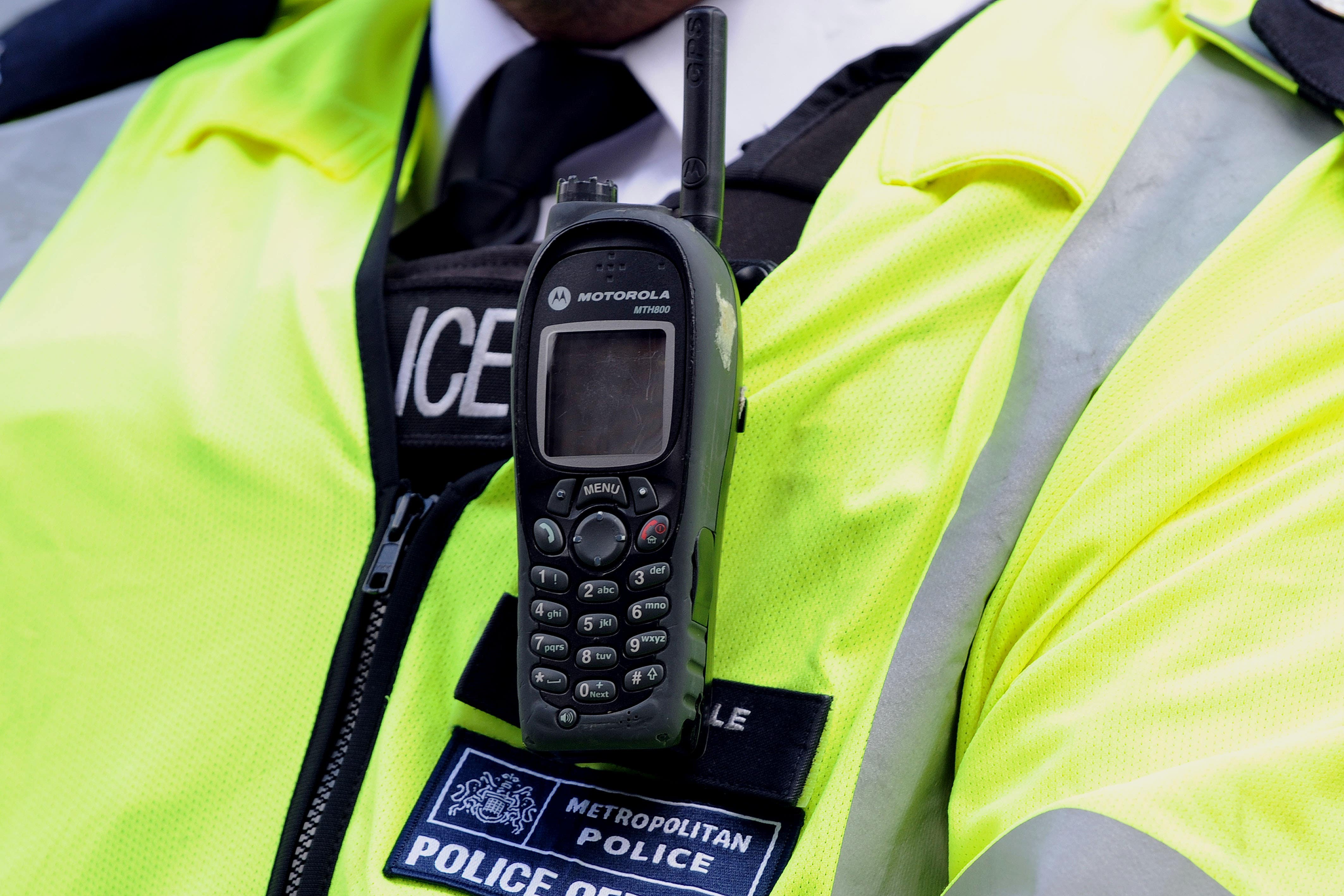Watchdog caps cost for police and ambulance radios after Motorola ‘overcharges’
The Competition and Markets Authority said the price cap will remain in place until 2029, but Motorola said it would appeal.

Your support helps us to tell the story
From reproductive rights to climate change to Big Tech, The Independent is on the ground when the story is developing. Whether it's investigating the financials of Elon Musk's pro-Trump PAC or producing our latest documentary, 'The A Word', which shines a light on the American women fighting for reproductive rights, we know how important it is to parse out the facts from the messaging.
At such a critical moment in US history, we need reporters on the ground. Your donation allows us to keep sending journalists to speak to both sides of the story.
The Independent is trusted by Americans across the entire political spectrum. And unlike many other quality news outlets, we choose not to lock Americans out of our reporting and analysis with paywalls. We believe quality journalism should be available to everyone, paid for by those who can afford it.
Your support makes all the difference.The competition watchdog has said it will cap the price Motorola can charge for the radio network used by all of Great Britain’s emergency services, but the company said it plans to appeal against the decision.
The Competition and Markets Authority said emergency services have no choice but to use Motorola’s Airwave Network so the business can charge “prices well above competitive levels”.
This is costing the taxpayer around £200 million more than it should each year, the CMA said.
The particular circumstances of this case mean that a price cap is the only effective way of ensuring the emergency services, and the taxpayers who fund them, aren’t paying considerably over the odds
The watchdog said it will limit the amount Motorola can charge “to a level that would apply in a well-functioning competitive market”.
The cap will run until 2029, although there will be a review in three years.
“Our emergency services have to use the Airwave Network to protect the public and themselves,” said Martin Coleman, who chaired the CMA’s inquiry group.
“We are generally reluctant to impose price controls, but the particular circumstances of this case mean that a price cap is the only effective way of ensuring the emergency services, and the taxpayers who fund them, aren’t paying considerably over the odds.
“The cap will end the supernormal profits that Motorola has been making while allowing it to make a fair return.”
It cannot be justified on competitive, economic or legal grounds
But Motorola said that what the CMA called a “fair return” was an “unprecedented overreach (which) will have a chilling effect on long-term investment”.
“Motorola Solutions strongly disagrees with the CMA’s final decision and believes it cannot be justified on competitive, economic or legal grounds. We will appeal the decision,” it said.
It argued that the CMA had found no shortcomings in the Airwave service and the Home Office had negotiated the current price.
The Airwave Network was set up through a Home Office procurement in 2000. The original contract was set to run until 2019 or 2020 when it was expected to be replaced by a new system using a commercial 4G mobile network.
But the new system was delayed and is not expected to come online until 2029, leaving Airwave with a continued monopoly.
The original annual price was meant to cover the up-front cost to build the network, but these costs should have been recouped by the time the contract was renewed, and the price should then have been slashed, the CMA said.
Instead the emergency services continued to be charged a similar amount.
Mr Coleman said: “When the original contract period for the Airwave Network came to an end, there was no alternative provider so Motorola held all the cards when it came to pricing.
“As a result, the emergency services are locked in with a monopoly provider with no option but to pay a much higher price than they would if the market was working well.”